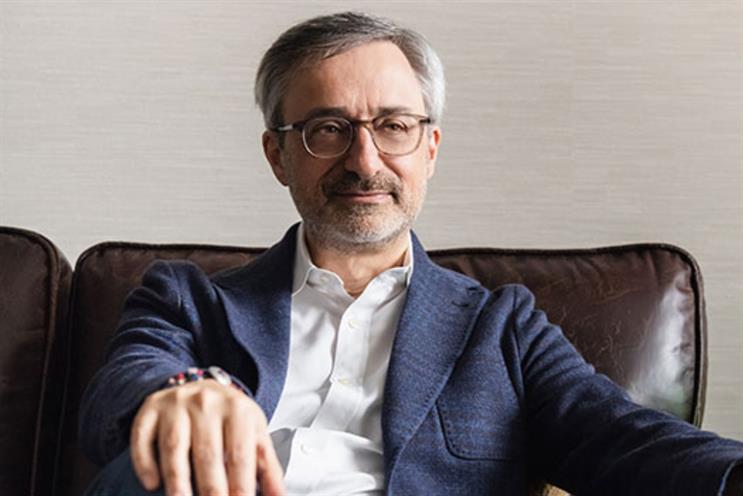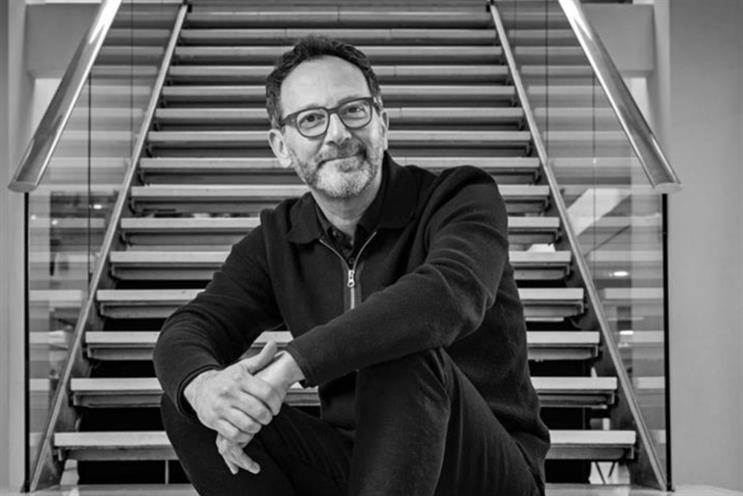WPP, Dentsu and Interpublic failed to deliver on their growth targets for 2023, but Publicis Groupe, Omnicom and Havas hit theirs and are upbeat about the prospects for 2024, Campaign's analysis of the latest holding company financial results has shown.
Despite forecasting 3-5% organic growth for 2023, WPP delivered just 0.9% because of its exposure to tech clients.
“2023 was more challenging than we expected due to cuts in spending by technology clients,” WPP chief executive Mark Read admitted.
The holding company said in January it wants to save £125m in costs through consolidation of its network, while setting aside £250m a year to invest in technology and AI. It is targeting just 0-1% growth in 2024.
It was Dentsu that achieved the worst organic growth of the “big six” global agency groups last year. It expected 4% but said it was tripped up by clients delaying big transformation projects because of the rising cost of capital – as well as by the underperformance of its international operations. Its organic revenues shrank by 4.9%, leading it to restrict its 2024 target to around 1%.
In the UK and Ireland, Dentsu is cutting 2% of jobs as part of a restructure, though it is understood the activity is intended to allow recruitment in areas for future growth.
Interpublic Group was the second to report shrinking organic growth, of minus 0.1%, after it had expected 2-4%.
“Regrettably, we had two sizeable losses...That’s taken a lot of the wind out of our sails,” chief executive Philippe Krakowsky said.

Publicis was the only holding company of the big six to outperform its 2023 organic growth target.
It delivered 6.3% rather than the 3-5% promised at the outset of 2023 and chief executive Arthur Sadoun said that “after six years of transformation, Publicis definitely extracted itself from the pack in 2023”.
He added: “We are also growing twice as fast as the main IT consulting firms.”
Havas did not set a formal growth target but CEO Yannick Bolloré told Campaign in October he would “have been very positively surprised in January if you had told me we would have reached more than 4% organic growth after the first nine months”. It finished the year up 4.4%.
Omnicom ended the year on target; it aimed for 3-5% organic growth and delivered 4.1%, despite the loss of Pfizer to Publicis and IPG.
John Wren, the US-based holding company’s chief executive, highlighted new-business wins, particularly in media, including Amazon, HSBC and Uber.
Improvement in Q4
All agency groups with the exception of Dentsu found that the traditionally strong fourth quarter brought an improvement in annual organic growth compared with Q3.
Dentsu’s performance in October-December, of minus 6.6%, dragged down its full-year organic growth. One area of concern was a 13.6% drop in Europe, the Middle East and Africa in Q4, in part due to issues within Germany, Austria and Switzerland, which underwent a complex business transformation.
In contrast, WPP and IPG both enjoyed a bounce-back from negative growth in Q3 to positive growth in Q4, the former from -0.6% to 0.3% and the latter from -0.4% to 1.7%. Yet IPG boss Krakowsky observed: “While the top line improved measurably through Q4, for the year, we did not perform up to our expectations, or the high standard we’ve set over the long term.”
Publicis, Omnicom and Havas achieved the most growth, mirroring the full-year picture, although only Publicis called out the final quarter as “stronger than expected”. The French group grew by 5.7%, ahead of Havas’ 4.7% and Omnicom’s 4.4%.
Acquisitions and investment
Omnicom made the largest M&A move of the six major holding companies in 2023 when it spent $900m (£700m) on Flywheel. Wren said the deal not only gives Omnicom “scaled capabilities in the fastest growing segments of the industry – retail media and digital commerce” but also makes it “more competitive than we’ve been historically” in the FMCG sector.
The global agency group is aiming for 3.5-5% organic revenue growth in 2024 – not too dissimilar to Publicis, which has set a goal of 4-5%. Meanwhile, Havas has not been as specific but the figure Bolloré volunteered in October was 2%.
The Vivendi-owned company has also scored M&A deals this year. Havas continued its strategy of global expansion with nine acquisitions in 2023 – a record for the agency group – including UK-founded Uncommon Creative Studio and Indian digital specialist Pivot Roots.
WPP made AI a big focus of its capital markets day in February, with Read telling investors that he plans to keep investing £250m a year in AI, data and technology, including internal platform WPP Open.
In a similar vein, Publicis has earmarked €700-800m (£600-680m) for M&A to boost its data, tech, commerce and AI capabilities. Sadoun announced he would invest €300m over the next three years in a new AI-powered data platform called CoreAI.
IPG, which is aiming for 1-2% organic growth in 2024, is planning $80m investment in AI this year and Krakowsky raised the prospect of engaging in M&A to boost its scale in digital transformation.
“We’re thinking a lot about whether we’ve got the scale there that we require, specifically around skill sets like digital transformation,” he said, adding that IPG is looking at a “broad range” of solutions “including M&A.”
Restructuring and regrouping
Global agency groups are in a period of staffing upheaval.
Publicis said it was planning to recruit a net 1,200 staff in Q1 2024 following 2023’s rise from 96,000 to 102,000. However, it slashed its freelance spend by 27% last year.
At WPP, Read said he hoped “to restructure the business as much as we can through attrition” and has already reduced freelance costs by 19% in 2023.
Having been hit early by the tech client pullback, IPG reduced its headcount from 58,400 at the end of 2022 to 57,400 at the end of 2023.
Meanwhile, Dentsu – which experienced the biggest drop in 2023 margin among the major agency groups, from 18.4% to 14.5% – said it was focused on its “One Dentsu” restructure strategy. Last month it was announced Beth Freedman, chief executive of Dentsu X, would be leaving her position as part of the strategy.
Announcing the 2023 financial results earlier last month, Dentsu chief executive Hiroshi Igarashi said: “We will continue executing our strategic objectives to return the group to growth.
“Implementing One Dentsu will ensure the suitable structures are in place for a client-centric, winning organisation. Progress includes removing internal silos, simplifying practice areas, and aligning P&Ls to serve clients best to deliver integrated growth solutions. We will continue to drive profitability through our existing core business assets.”





